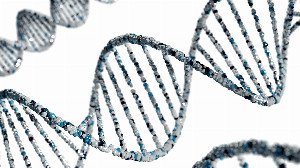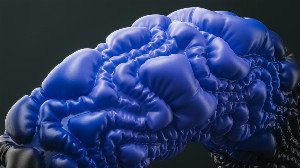Are You Just a Colony? The Intriguing Biology of Collective Identity
- Sciaria
- Biology
- Oct 18, 2025
- 0 Comments

Ever pondered your place in the grand scheme of things, feeling like just one part of a larger whole? In biology, this existential question takes on a fascinating, literal dimension. From the bustling streets of an ant colony to the intricate ecosystems of coral reefs, life abounds with examples of collective identity. But what if this concept extends to us, too? Are humans, in essence, highly sophisticated colonies?
When we think of a colony, images of social insects like ants and bees, or marine invertebrates like coral, often come to mind. These are groups of genetically similar or identical individuals working together, often with specialized roles, for the survival and propagation of the collective. A single coral polyp, for instance, is an individual, yet it's part of a larger, interconnected structure that we perceive as a single organism – the coral reef. This highlights a blurred line between individual and collective.
Now, consider the human body. We are composed of trillions of cells – muscle cells, nerve cells, blood cells, skin cells – each with its own life cycle, specific function, and, crucially, a shared genetic blueprint. These cells communicate, cooperate, and sacrifice for the greater good of the entire organism. If one group of cells fails, the whole body suffers. Isn't this strikingly similar to the specialized roles within an ant colony, where soldiers defend and workers forage, all for the benefit of the queen and the colony's survival?
The concept of multicellularity itself, a defining characteristic of complex life forms like us, arose from single-celled organisms aggregating and then specializing. This evolutionary journey from solitary cell to complex organism is, in many ways, a story of increasingly integrated colonial behavior. Take the Portuguese Man O' War (*Physalia physalis*), often mistaken for a single jellyfish. It's actually a siphonophore, a colony of four specialized polyps (zooids) that are so interdependent they cannot survive apart. Each polyp performs a vital function: one forms the gas-filled float, others are responsible for feeding, reproduction, or defense.
So, are we just a colony? While we possess a unique emergent property we call consciousness and a singular sense of self, our biological reality is a testament to the power of collective identity. Each cell within us, though an individual biological unit, has surrendered much of its autonomy for the benefit of the greater 'superorganism' – us. We are not colonies in the simple sense of a bee hive, but rather a profoundly integrated, complex biological system that evolved from colonial principles. Our individuality is a sophisticated symphony of billions of cooperative cells, making us perhaps the most remarkable 'colony' of all.
Comments (0)
Rate This Blog
Top Blogs by Rating
'Um' Isn't Just a Stumble: Wha...
By Sciaria
The Elusive Self: Is Authentic...
By Sciaria
Your Dynamic DNA: The Adapting...
By Sciaria
Favorite Blog
Phantom Power: Unmasking Your...
By Sciaria
Unlock Your Brainpower: Master...
By Sciaria
Beyond Silicon: How Living Mat...
By Sciaria




